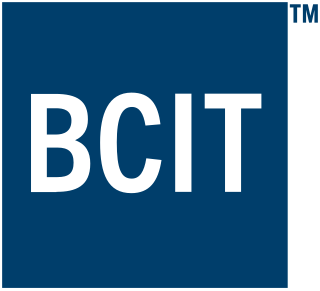
The British Columbia Institute of Technology, is a public polytechnic institute in Burnaby, British Columbia, Canada. The technical institute has five campuses located in the Metro Vancouver region, with its main campus in Burnaby, British Columbia, Canada. There is also the Aerospace Technology Campus in Richmond, the Marine Campus in the City of North Vancouver, Downtown campus in Vancouver, and Annacis Island Campus in Delta. It is provincially chartered through legislation in the College and Institute Act. The school operates as a vocational and technical school, offering apprenticeships for the skilled trades and diplomas and degrees in vocational education for skilled technicians and workers in professions such as engineering, accountancy, business administration, broadcast/media communications, digital arts, nursing, computing, medicine, architecture, and law.

Camosun College is a public college located in Saanich, British Columbia, Canada. The college has two campuses, Lansdowne and Interurban, with a total full-time equivalent enrollment of 4,946 students in 2022/23. Camosun College also provides contract training for local business; research, innovation and prototyping services for industry; and trained co-op students for employers.

Vancouver Island University is a Canadian public university serving Vancouver Island and coastal British Columbia. Malaspina College opened in 1969. The main campus is located in Nanaimo, with regional campuses in Duncan and Powell River.
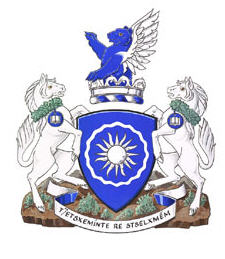
Thompson Rivers University is a public teaching and research university offering undergraduate and graduate degrees and vocational training. Its main campus is in Kamloops, British Columbia, Canada. Its name comes from the two rivers which converge in Kamloops, the North Thompson and South Thompson. The university has a satellite campus in Williams Lake, BC and a distance education division called TRU-Open Learning. It also has several international partnerships through its TRU World division. TRU is accredited by the Northwest Commission on Colleges and Universities (NWCCU) at the associate, baccalaureate and master's degree levels.

The University of the Fraser Valley (UFV), formerly known as University College of the Fraser Valley and Fraser Valley College, is a public university with campuses in Abbotsford, Chilliwack, Mission and Hope, British Columbia, Canada. Founded in 1974 as Fraser Valley College, it was a response to the need for expanded vocational training in the communities of the Fraser Valley. In 1991, it became a university college, with degree-granting status. As the University College of the Fraser Valley, it grew rapidly, becoming one of the largest university colleges in Canada.
Aurora College, formerly Arctic College, is a college located in the Northwest Territories, Canada with campuses in Inuvik, Fort Smith and Yellowknife. It has learning centres in 23 communities in the NWT. The head office for Aurora College is located in Fort Smith.

Vancouver Community College (VCC) is a public community college in Vancouver, British Columbia, Canada. Founded in 1965, it is the oldest community college in British Columbia. VCC offers 79 certificate programs, 24 diploma programs, 9 award of achievement programs, 8 apprenticeship programs, 4 statement of completion programs, 3 bachelor's degree programs and 2 associate degree programs. VCC has two campuses: Broadway and Downtown.
Northern Lights College (NLC) is a public college in Northern British Columbia, Canada. It currently has campuses and access centers in eight communities across the northern third of British Columbia, with Regional Administration located at the Dawson Creek campus. As of 2021, international students comprised 25% of NLC's total student population and 20% identified as Indigenous.

The Institute of Indigenous Government, Canada's First Nations College, is a publicly funded post-secondary education institute located in Burnaby, British Columbia. Established in 1995, the institute was originally located in the Gastown neighbourhood of Vancouver. Its corporate owners, members, faculty, and students were made up of indigenous people from around the world, in the majority. In September 2007, the Institute of Indigenous Government became part of the Nicola Valley Institute of Technology; an aboriginal-run, private institute in Merritt, British Columbia, that was started in 1983.

Okanagan College is a public post-secondary institution with multiple campuses spread across the southern interior of British Columbia, Canada. The College was established in 1963 and grown to become one of the largest colleges in British Columbia outside the Lower Mainland and Victoria. It has roughly 5,000 full-time students per semester across four regional campuses. 1,885 international students from over 40 countries studied at Okanagan College in 2022-23, comprising 11% of its total student headcount. The College once had one of the fastest growing populations of Indigenous students of any college in the province; in the 2015-16 academic year Okanagan College delivered educational programming to 1,680 Indigenous students. However, the growth did not continue, in 2021-22 the Indigenous student headcount remained at 1,690.

Bow Valley College is a Canadian public, board-governed college located in Calgary, Alberta, operating as a comprehensive community institution under the Post-Secondary Learning Act of Alberta. The branch campuses are: Airdrie, Banff, Cochrane, Okotoks, and Strathmore. Bow Valley College is a member of the Alberta Rural Development Network and Colleges and Institutes Canada.
Coast Mountain College (CMTN) is an accredited, publicly funded post-secondary educational institution that serves the communities of British Columbia's northwest region. CMTN offers field schools, college access, trades, university credit, health and human services programs. The college is a member of the University of the Arctic network, and Colleges and Institutes Canada (CiCan).

The NEC Native Education College is a registered private aboriginal college based in Vancouver, British Columbia. It is governed by non-profit society and is a registered charitable organization.

The College of the Rockies is a Canadian public community college, located in the southeast corner of British Columbia, Canada. The main campus is in Cranbrook, with regional campuses in Creston, Fernie, Golden, Invermere, and Kimberley.

Higher education in Canada includes provincial, territorial, Indigenous and military higher education systems. The ideal objective of Canadian higher education is to offer every Canadian the opportunity to acquire the skills and knowledge necessary to realize their utmost potential. It aspires to cultivate a world-class workforce, enhance the employment rate of Canadians, and safeguard Canada's enduring prosperity. Higher education programs are intricately designed with the perspective of the learner in focus, striving to mitigate risks and assure definite outcomes.
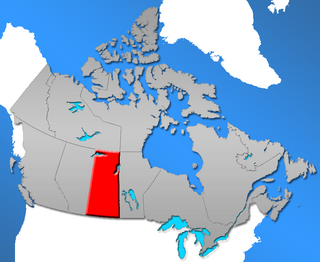
Historically, Saskatchewan's higher education system has been "significantly shaped" by demographics. In 1901, six years prior to the 1907 founding of a university in Saskatchewan, the urban population in Saskatchewan was 14,266 (16%) while the rural population was 77,013 (84%). One hundred years later, the proportions had changed significantly: urban population in 2001 was 629,036 (64%) while the rural population was 349,897 (36%). Over time the province's higher education system has changed significantly in response both to this demographic shift and to provincial politics.
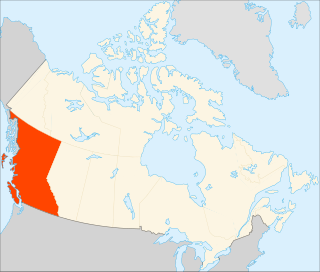
Higher education in British Columbia is delivered by 25 publicly funded institutions that are composed of eleven universities, eleven colleges, and three institutes. This is in addition to three private universities, five private colleges, and six theological colleges. There are also an extensive number of private career institutes and colleges. Over 297,000 students were enrolled in post-secondary institutions in British Columbia in the 2019-2020 academic year.

Shawn A-in-chut Atleo, is a Canadian activist and politician, a former National Chief of the Assembly of First Nations in Canada. He also has served since 1999 as a Hereditary Chief of the Ahousaht First Nation, part of the Nuu-chah-nulth Nation based in British Columbia.
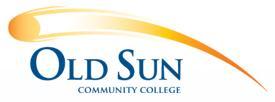
Old Sun Community College is a community college owned and operated by First Nations that provides post-secondary education and training in Siksika 146, Alberta, Canada, to members of the Siksika Nation.

















